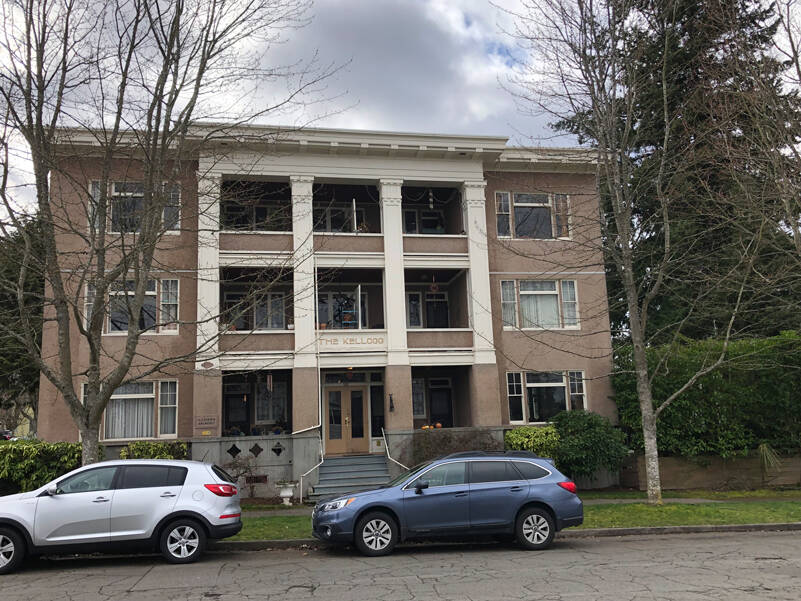By Morf Morford, Tacoma Daily Index
Airbnb was one of those almost great ideas.
The premise is simple; anyone with a currently unused bedroom could rent it out on an unscheduled, short-term basis.
For empty-nesters, whose children have moved out, this would be ideal. For those looking for a place to stay at prices better than hotels on a temporary basis, this was a perfect answer.
Airbnb was also portrayed as a way to get to know members of the local community.
In a perfect, or even rational, world, Airbnb would have worked in everyone’s favor.
But if you’ve stayed at an Airbnb or know someone who has, you have certainly heard horror stories – both from hosts and renters.
In short, Airbnb could have been an answer – but has instead become a problem.
You can see the fine print on how Airbnb went from a cheap and fun hotel alternative to the expensive nightmare it is today here (god.dailydot.com/airbnb-is-over/).
Like several business models of the 2020s, Airbnb has an asset-light, highly scalable business and a near-infinite possibility of expansion. Like Uber, Airbnb (the company) owns essentially nothing.
Airbnb has, in fact been defined as “the largest hotel chain in the world, without actually owning inventory.”
But Airbnb is not a hotel
We’ve stayed in adequate, almost nice and quite terrible Airbnbs. And we’ve heard too many stories about out of control parties and what Airbnbs have done to neighborhoods.
Hotels don’t rely exclusively on trust – as Airbnb hosts and renters do. Like other online platforms between strangers who will, in all likelihood, never meet, Airbnb relies on a rating system – and little else.
I spoke to one Airbnb host who told me of a wild party that wrecked furniture and walls of her house. The renter was a young person with prominent and wealthy parents who paid the bill and closed her Airbnb account. The young woman and her friends had a long history of wild parties and trashed Airbnbs.
Airbnb has a thousand stories like that – but hotels rarely do.
And it’s not just parties
Airbnbs have other negative impacts on neighborhoods.
Airbnb (ABNB) had its initial public offering late in 2020 and has “wobbled” if not declined since then.
Many neighborhoods – especially those with HOAs or other restrictions – have bans on Airbnbs. Some zoning regulations target Airbnbs and other sub-letting arrangements. Many people coming and going can change the texture and pace of a neighborhood.
But the money can be good
In a “gig” economy where “side hustles” reign supreme, operating an Airbnb (especially in an era of frenzied rental markets) can be beyond lucrative – if it doesn’t make you crazy.
Some housing suits Airbnb use better than others.
College towns and downtown areas can be a steady income stream. As can locations near special events.
I know some people who rented out their homes near a Chambers Bay golf tournament for over $2,000 a night. Each night’s earnings paid more than the monthly mortgage payment.
Is a house still a home if strangers live there?
Many home owners (or even apartment renters) who travel or who, for whatever reason, are not home very much, find Airbnb to be a financially rewarding income stream.
Maybe too much so…
Making money, literally from home, can pay better than many other pursuits – like writing and photography or almost any of the arts, and that money may be difficult to subtract from any budget.
Single family homes may fit certain zoning regulations, but would their conversion – or at least occasional use – as Airbnbs change their legal status? Tax rating?
Airbnbs have already reshaped our neighborhoods but as with every transition, but as with every change, we have to ask if that is a direction we want to go – and, of course, what that direction even is.
A decade or so ago, McMansions were the dominating housing trend. In our over-heated housing market, smaller is better. And temporary might be even better.
But what comes after snack-sized, no commitment housing?
And if you have a space to rent…
There’s more than Airbnb, of course.
If you have a space to rent, or if you want to travel without the usual hotel experience, you can see a list and analysis of several other options here – cofes.com/vrbo-competitors/.
If your tastes tend toward more unusual and affluent homes, try OneFinStay.
And for the other end of the budget spectrum try CouchSurfing.
In between those, consider Booking.com, Tripadvisor and, of course, VRBO.





